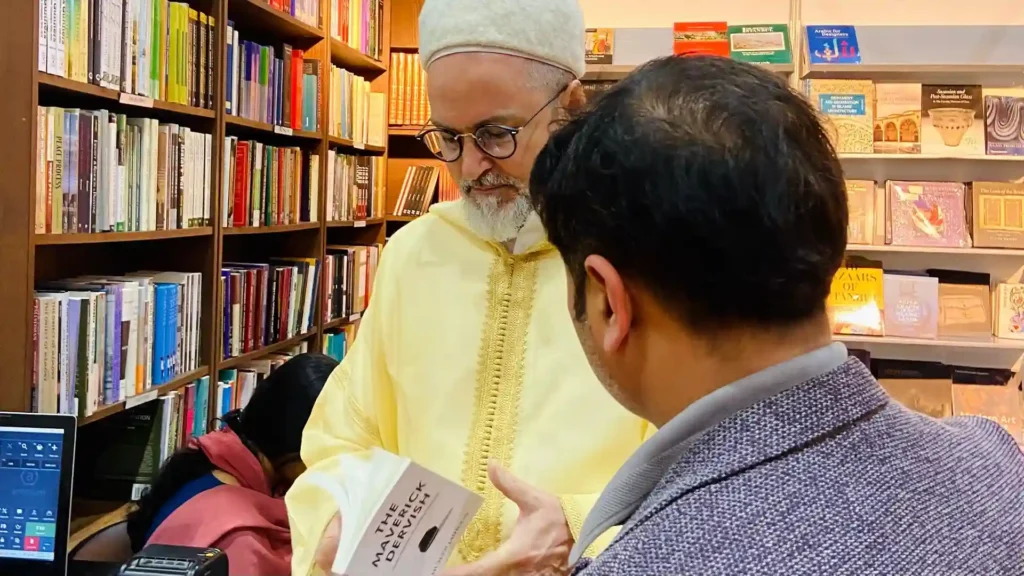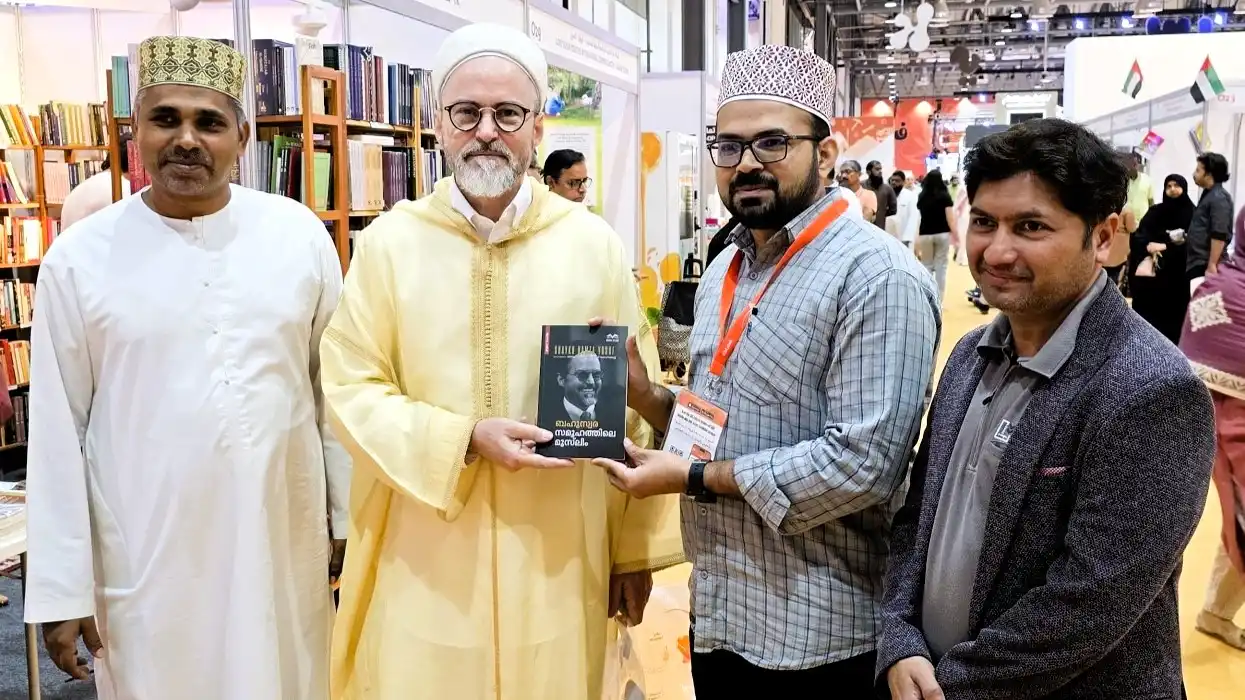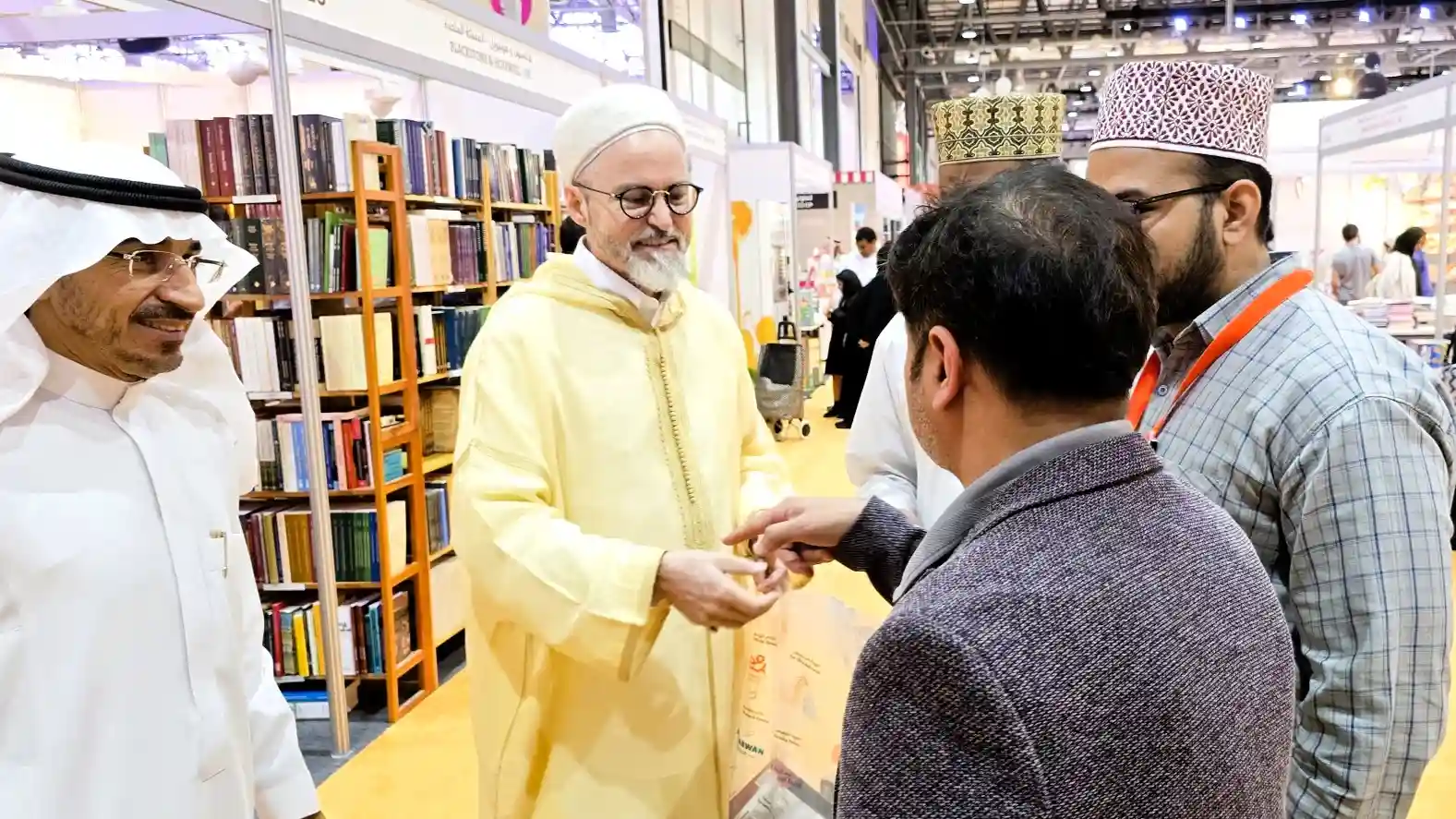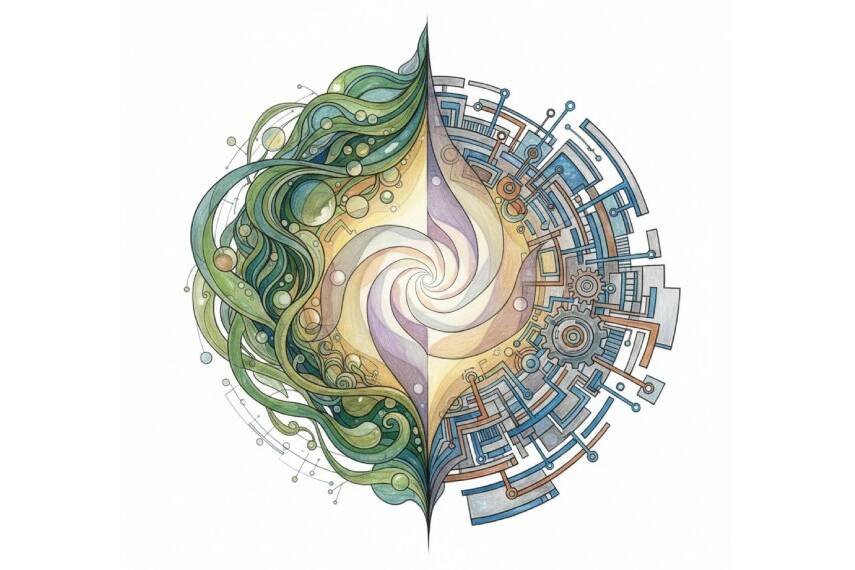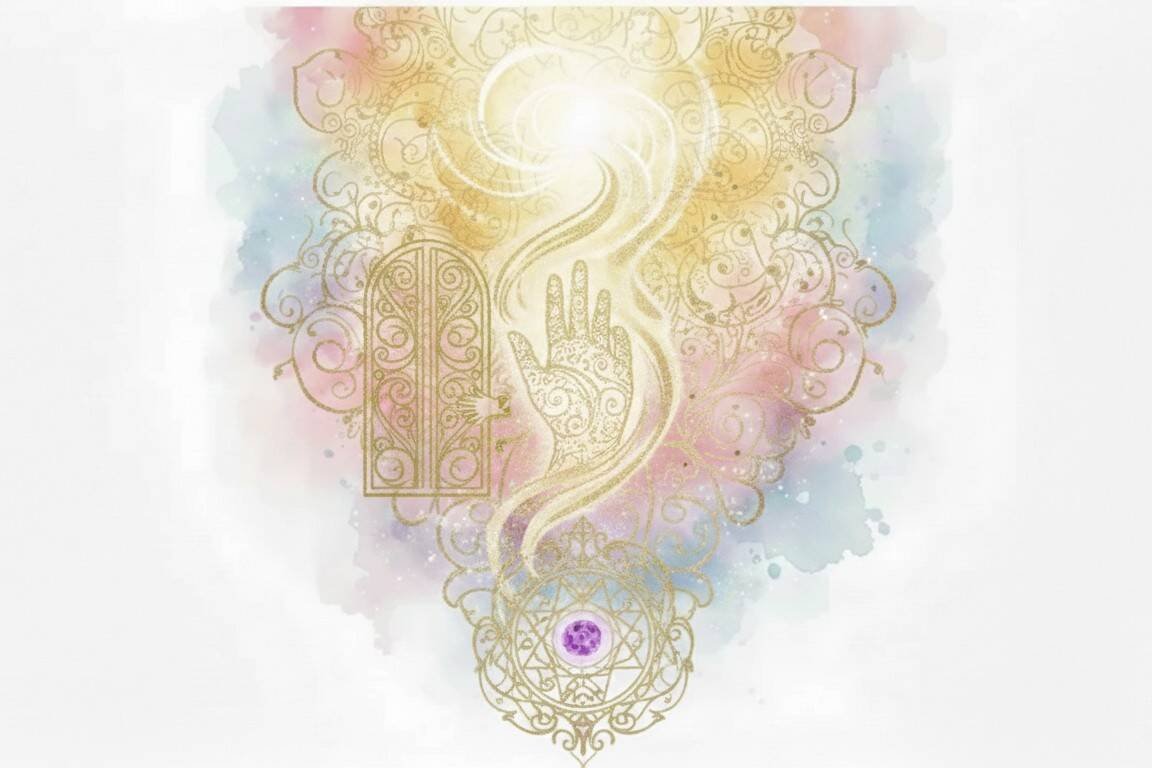Mujeeb Jaihoon recounts his chance encounter with the celebrated American Muslim scholar at the Sharjah International Book Fair 2024
The gold rush to visit the venue on the last day of an ongoing event is only habitual for us humans, especially in our days of time poverty. I, too, joined this common ritual by dashing to the concluding day of the Sharjah International Book Fair, hoping for any last-minute miracles. And the Heavens did not disappoint me, as always. Hence, my gut feeling that both our fanciful desire and its fulfillment are from His Divine ‘Destiny-Tablet’.
As I and my book-loving daughter strolled through the 43rd edition of one of the world’s largest book fairs, destiny had it that we stepped into the renowned repository of the British book collector, Idris Mears. As we moved in closer to the book shelves, I noticed my little child pointing at someone, with eyes wide open and hushed with disbelief. As I turned in the pointed direction, I too realized why she couldn’t utter a word. Could coincidence be this brutal beyond belief? A glance too unreal for the eyes to behold! I looked at my daughter again and whispered: “Is that our Shaykh Hamza Yusuf?”
She affirmed with her familiar assertive nod. Donned in a golden hooded Moroccan thobe and white cap, standing before me was the human form personified of a voice I had been lending my ears and heart to for the past quarter century. Shaykh Hamza represents one of the finest living symbioses of Islamic and Western intelligentsia. He is not a stranger to Middle and Eastern sciences as well, which was evident from our discussion that followed. Trained in the traditional Islamic sciences in the merciless deserts of Mauritania and spent a modest part of his life in the company of some of the notable saints and scholars of our time, Shaykh Hamza is among the most influential Islamic icons. Though he is acclaimed by some as the ‘Rockstar of Traditional Islam,’ the American Islamic scholar is an advocate of spiritual and introspective practice of the Faith, often shunning politically charged controversies.
After exchanging greetings and introductions, he turned to my daughter and asked her name. When she replied, “Junaina,” he exclaimed with childlike wonder, “Oh, the Little Garden,” translating her name.
Just then an anxious Indian student rushed breathless to the scene, unable to control his bewilderment of witnessing his favorite scholar. He inquired about the boy’s whereabouts, and as soon as he mentioned “Kerala,” the founder of Zaytuna College exclaimed that his institution had students from the South Indian state. When the student inquired about how to make it to this prestigious Islamic center, the Shaykh asked him to focus on linguistic skills including Arabic grammar and English vocabulary. He reminded the student it is important for a seeker to attain mastery of languages and as many diverse forms of knowledge. He also asked the teenager to excel in Mathematics, including calculus and trigonometry, as they were compulsory subjects in the Berkeley, California-based liberal arts college. He quoted the Quranic verse which highlighted the epistemological importance of Mathematics:
وَجَعَلْنَا اللَّيْلَ وَالنَّهَارَ آيَتَيْنِ ۖ فَمَحَوْنَا آيَةَ اللَّيْلِ وَجَعَلْنَا آيَةَ النَّهَارِ مُبْصِرَةً لِّتَبْتَغُوا فَضْلًا مِّن رَّبِّكُمْ وَلِتَعْلَمُوا عَدَدَ السِّنِينَ وَالْحِسَابَ ۚ وَكُلَّ شَيْءٍ فَصَّلْنَاهُ تَفْصِيلًا
And We have made the night and the day two Signs, and the Sign of night We have made dark, and the Sign of day We have made sight giving, that you may seek bounty from your Lord, and that you may know the computation of years, reckoning of time and mathematics. And everything We have explained with a detailed explanation. (Al Quran 17:12)
No sooner had he concluded the academic discussion when the Malayalam publisher of his book burst onto the scene, eager to join the lively gathering. When they presented the book for the celebrated preacher to review, he responded with an unexpected remark: “Change his image in the next edition with a non-smiling, serious pose photo.” He reminded that a believer must appear serious when others observe him so that the topic is taken seriously. The companions of the Holy Prophet saw a thoughtful person while he was alone. “والحزن رفيقي…” I interrupted. “Exactly. Sadness is my companion,” explained the Shaykh.
To lighten up the mood, he shared a common saying of the Arabs that Malayalam is actually “Ma La Yalam” referring to the ambiguity and difficulty of the Indian language. All those present shared a hearty laugh.
While Shaykh Hamza Yusuf was a globally respected speaker and scholar, he did not hesitate to warmly accept my humble poetry anthology, The Maverick Dervish, which he immediately added to his books collection. I recalled our previous two meetings – the first at Medina, the blessed city of the Holy Prophet, where he made dua in front of the Rawdha Shareef after reciting salat on the Beloved (sallallahu alaihi wa sallam), and the other at the American University of Sharjah.
Shaykh Hamza left too soon. All those present stood still, not sure if they were in a dream or reality. Amidst all the bustling noise of the book fair, they placed their hands on their hearts, unable to contain their gratitude to the Ultimate Planner of all planners.
Nov 17, 2024. Written in good faith. Any errors are the writer’s own.
Mujeeb Jaihoon
Mujeeb Jaihoon, reputed Indian author, explores themes of universal love, deeply embedded in a disruptive spiritual worldview.
Related Posts
Feb 11 2026
Of Wounds and Wonders: Seeking the Divine Signature in Love and Pain
To love is to know. Whether through nature or machines, seekers find the…
Feb 10 2026
ഇതാണൊ ഇസ്ലാം ?
Mujeeb Jaihoon's controversial take on some of the double standards prevalent…
Feb 05 2026
The High Priests of the Tech Temple: How ‘fin-fluencers’ Protect the Corrupt Elite
While influencers idolize the image of the ultra-rich, they stay silent on the…
Feb 03 2026
The Knock is More Important Than the Opening
We often value results over intent, yet spiritual merit lies in the seeking. As…
